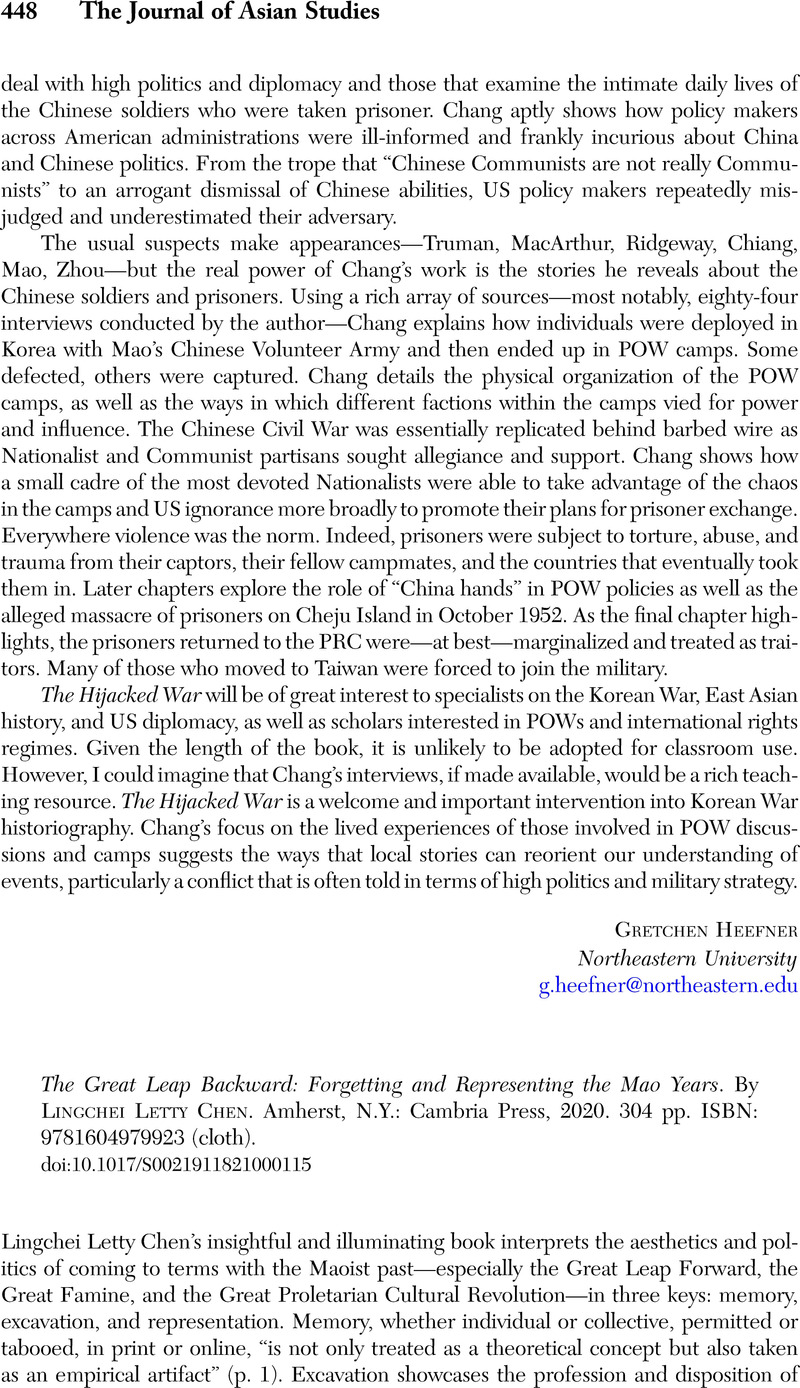No CrossRef data available.
Published online by Cambridge University Press: 17 May 2021

1 Tang, Xiaobing, Chinese Modern: The Heroic and the Quotidian (Durham, N.C.: Duke University Press, 2000)Google Scholar; Braester, Yomi, Witness against History: Literature, Film, and Public Discourse in Twentieth-Century China (Stanford, Calif.: Stanford University Press, 2003)Google Scholar; Wang, Ban, Illuminations from the Past: Trauma, Memory, and History in Modern China (Stanford, Calif.: Stanford University Press, 2004)Google Scholar; Wang, David Der-wei, The Monster That Is History: History, Violence, and Fictional Writing in Twentieth-Century China (Berkeley: University of California Press, 2004)CrossRefGoogle Scholar; Berry, Michael, A History of Pain: Trauma in Modern Chinese Literature and Film (New York: Columbia University Press, 2008)Google Scholar; Denton, Kirk A., Exhibiting the Past: Historical Memory and the Politics of Museums in Postsocialist China (Honolulu: University of Hawai‘i Press, 2014)Google Scholar; Li, Jie, Utopian Ruins: A Memorial Museum of the Mao Era (Durham, N.C.: Duke University Press, 2020)Google Scholar.